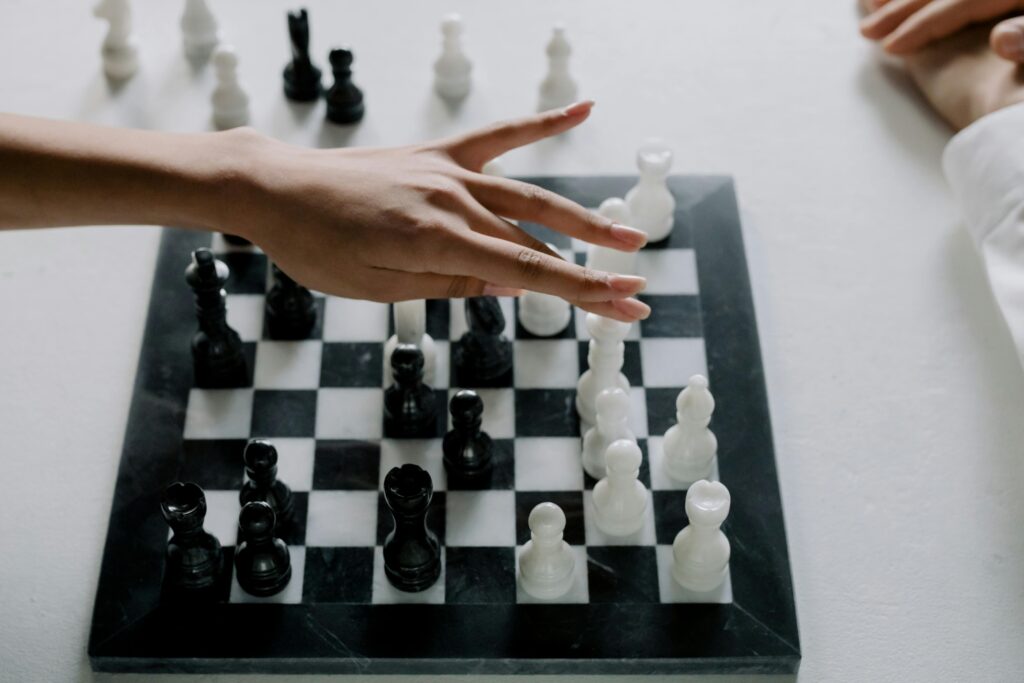If you’re a parent living in Harehills, Leeds, and your child loves chess—or even just shows a little spark—you might be wondering, “Where can I find the right chess classes near me?” With so many choices out there, it’s easy to feel confused. Some places are just too far. Some don’t have the right teachers. Some are too serious or too casual. But don’t worry. We’ve done all the hard work for you.
Online Chess Training
Landscape of Chess Training in Harehills and Why Online Chess Training is the Right Choice
Harehills is a lively neighborhood in Leeds. It’s full of families, schools, parks, and a mix of cultures. But when it comes to chess training, there aren’t many structured options nearby.
Some local community centers may run occasional chess clubs. A few schools might offer chess as an after-school activity. And yes, you might find a coach who gives private lessons. But is that enough? And is it the best way?
Here’s something most parents don’t realize: chess, like math or music, needs clear steps. It’s not just about knowing how the pieces move. It’s about learning how to think. To plan. To wait. To act. And that kind of learning works best when it follows a plan.
Sadly, most offline coaching around Harehills doesn’t follow any real plan. Kids jump from topic to topic. Some sessions are too easy. Others are too hard. The coach might miss a class. Or the group might be too big. And let’s not even start on traffic and time—it’s not easy to squeeze in a drive across town after a long school day.
That’s where online chess training steps in—and shines. With online classes, your child can learn from home. There’s no travel. No stress. And the best part? They get access to expert coaches from around the world. They learn through fun lessons, puzzles, and real games—live, with a teacher. It’s personal, it’s focused, and it works.
So if you’re living in Harehills, you don’t need to look far. The right chess school is already in your home—online.
How Global School of Chess is The Best Choice When It Comes to Chess Training in Harehills
Now let’s talk about the one academy that’s changing how chess is taught—not just in Harehills, but around the world.
Global School of Chess is not just a name. It’s a real school. With real coaches. And real results.
It all starts with their love for chess. The coaches at Global School of Chess are not just good at the game—they’re amazing at teaching it. They’re FIDE-certified, which means they’ve been tested and trained by the top chess body in the world. But more importantly, they know how to talk to kids. They know how to make the game fun and friendly.
Each student gets a clear learning path. Not random lessons. Not scattered ideas. But step-by-step training based on their level. New kids start with basics. Advanced players dive into sharp tactics and strategies. Everyone has a plan. Everyone knows where they’re going.
And it’s not just group classes. Students also get private coaching if they want. This means every question gets answered. Every weak spot is fixed. Every win is celebrated.
Plus, there are bi-weekly online tournaments where students play against each other and against students from nine different countries. It builds confidence. It teaches sportsmanship. And it keeps kids excited.
What really makes Global School of Chess different is how they care. This isn’t a cold, robotic academy. The coaches cheer for your child. They talk to parents. They send updates. They help kids grow not just in chess—but in life.
Imagine your child learning to sit still, to think carefully, to make a plan, to lose with grace, and to win with humility. That’s what this school teaches.
So if you’re in Harehills and wondering where to start—start with a free trial class at Global School of Chess. Let your child experience what real, joyful chess learning feels like.
Offline Chess Training
Offline chess training holds a special place in the hearts of many. There’s something warm about sitting across from another player, hearing the click of the clock, or physically moving pieces across a wooden board. These small moments create memories. For decades, this was the only way people learned chess.
And yes, there are real benefits to offline training—especially in small, tight-knit groups where relationships grow. Some children thrive in a classroom filled with other kids. The setting feels real. The competition feels close. It can be a wonderful first step for social development.
But here’s where the offline model starts to crack—especially in today’s world.
The Limitation of Physical Reach
Offline training is bound by geography. Coaches can only serve a small number of students in one location. That means if you’re a business relying only on in-person classes, you’re constantly battling limited growth, transportation delays, and low scalability.
Actionable advice for coaches and academies: Start a hybrid model. Record your in-person sessions. Offer online review classes to those who missed a lesson. Package some sessions as an online course. This adds flexibility, opens up new income streams, and improves learning retention.
Inconsistency in Class Flow
Even the best offline classes can feel uneven. A coach might spend too long helping a slow student, while faster learners wait. Or a strong student might dominate all the games, leaving others frustrated. Without the support of interactive tools or parallel breakout sessions (like in online formats), keeping every child equally engaged is tough.
Pro tip for offline academies: Use chess clocks during teaching games. Set “learning stations” in your class—puzzles in one corner, peer-to-peer games in another, coach-led mini-lessons in a third. Rotate groups every 15 minutes. This keeps energy high and learning personalized.
Challenges in Measuring Progress
In most offline environments, progress is hard to track. There are no dashboards. No built-in metrics. Coaches rely on memory or paper notes, which can get lost or forgotten.
For parents, this creates doubt: “Is my child improving? How are they doing compared to others?”
Solution for businesses: Introduce a progress-tracking binder or app. Assign point values to completed lessons, puzzle scores, tournament games. Share this monthly with parents. When parents see progress, they stick with you longer—and trust your process more.
Limited Exposure to Diverse Playing Styles
When students only play the same few classmates week after week, they develop habits—good or bad—that go unchallenged. They miss out on facing new, unpredictable styles. This limits their growth and weakens their tournament readiness.
Actionable tip: Offline coaches should organize monthly “Open Chess Days” where kids from different schools or clubs compete. Better yet, partner with an online academy (like Global School of Chess) to expose students to international peers.
Coach Burnout and Time Drain
Offline coaching takes a lot out of the teacher. Travel time. Venue setup. Carrying boards and clocks. Even classroom control takes effort. This often leads to burnout, especially if classes are long or crowded.
Smart move: Offer smaller classes but charge more for quality. Use a tiered model—group class for basics, semi-private for tactical training, and private for tournament prep. This maximizes impact and income while reducing fatigue.
Drawbacks of Offline Chess Training
The first big problem is structure. Most offline classes don’t follow a set curriculum. Lessons may change depending on who shows up or what the coach feels like teaching that day. It’s hard for a student to see clear progress. It’s like walking in a maze without a map.
Another issue is timing. Parents have to drive their kids to class. Sometimes it’s across town. Sometimes it rains. Sometimes there’s traffic. By the time your child reaches class, they’re tired or rushed. And then you have to wait or come back again. It eats up time and energy.
Also, group size matters. Offline groups are often mixed. You might have a child who’s just learning how to move the knight sitting next to someone preparing for a tournament. Coaches try their best—but it’s hard to help everyone at once.
Then there’s consistency. A coach might be sick. A venue might be closed. Holidays come and go. And in many offline setups, if your child misses one session, it’s hard to catch up. There are no recordings. No notes. It’s just gone.
And cost? Many offline coaches charge by the hour. Some don’t offer make-ups. Some classes feel slow, especially if your child is a fast learner. And others move too fast if your child needs more time.
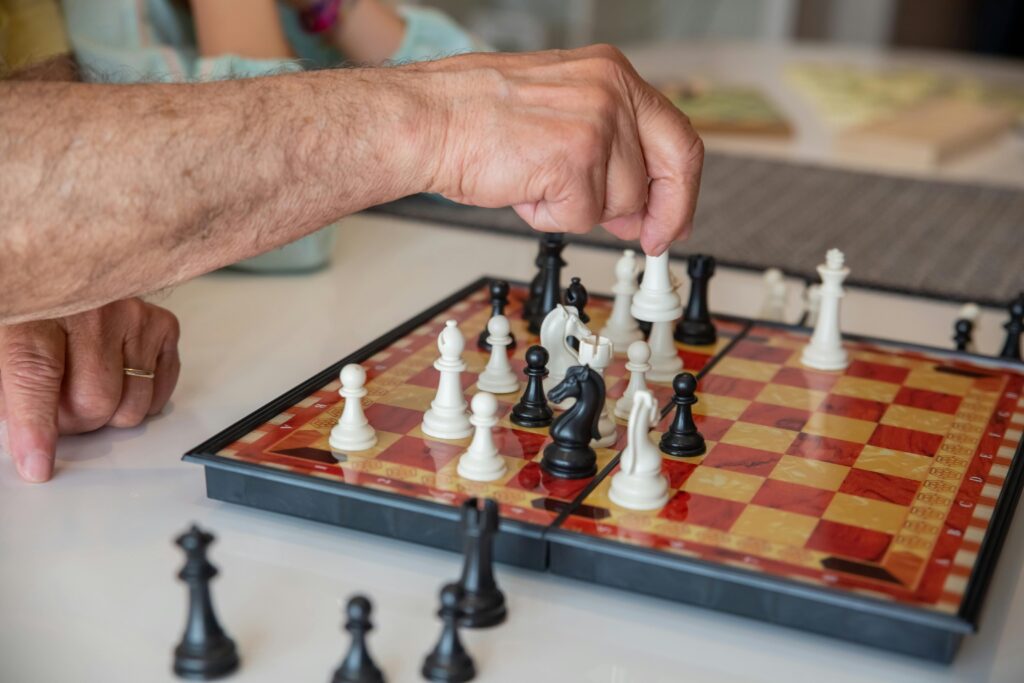
This is not to say offline training is bad. It’s just not ideal—especially not today, when online learning has grown so strong and so effective.
So if you live in Harehills or anywhere nearby, and you’re wondering what’s best for your child—think long-term. Think structure. Think comfort. Think progress. That’s what online chess training gives you. That’s what the Global School of Chess has mastered.
Best Chess Academies in Harehills
So now that we’ve looked at both online and offline chess coaching, let’s explore the top five chess academies that serve students in Harehills. We’ve looked into their coaching styles, how they teach, the results they bring, and how students feel when learning with them.
Let’s start with the best of them all.
Global School of Chess
Global School of Chess is not just another online school—it is the school. And here’s why it’s number one not just in Harehills, but in many parts of the world.
When you join the Global School of Chess, you don’t just sign up for chess classes. You step into a full system. A complete, clear, and kind learning journey.
The coaches here are amazing. They’re all trained, certified, and experienced. But what really makes them special is their heart. They care deeply. They listen to each student. They spot each child’s style and teach them the way they learn best. No two students are taught the same way here.
Every child begins with a simple test. This helps the coaches place them at the right level. Not too easy, not too hard. Just right. From there, the journey begins—step by step, lesson by lesson, puzzle by puzzle. It’s like climbing a ladder, one rung at a time.
And the lessons? They’re fun. Super clear. Short enough to keep attention. Deep enough to learn real strategy. Every class is live and interactive. Students can ask questions, play with the coach, solve problems on the spot. It feels just like a real classroom—but cozier and more focused.
Private coaching is available too. So if your child wants one-on-one time, they can get full attention from a top-level coach. This kind of personal learning can turn a beginner into a tournament player faster than you’d think.
And tournaments? Oh yes. Every two weeks, students get to play in online tournaments with others from different countries. It builds bravery. It teaches how to win, how to lose, and how to try again. These events are fun, exciting, and great for practice.
One of the best parts? Parents are kept in the loop. Coaches talk to you. They share how your child is doing. They even offer advice on how you can help at home. You’re never in the dark.
And the biggest reason parents love Global School of Chess?
It works.
Students grow. Not just in rating, but in patience. In thinking skills. In confidence. Chess becomes more than a game—it becomes a part of who they are.
And guess what? Anyone can try it for free. Just visit gschess.com/take-a-free-trial-class and book a spot. No payment. No pressure. Just pure, joyful learning.
Now, let’s look at a few other good options available to students in the Harehills area.
Leeds Junior Chess Club
Leeds Junior Chess Club is one of the oldest clubs in the city. They mostly offer offline group sessions on weekends and some after-school hours. The atmosphere is friendly, and it’s a place where kids can meet others who enjoy chess.
However, their sessions are more casual. They don’t follow a clear curriculum. There’s no online option. So while it’s a fun place for friendly games, students who want serious learning might not get everything they need.
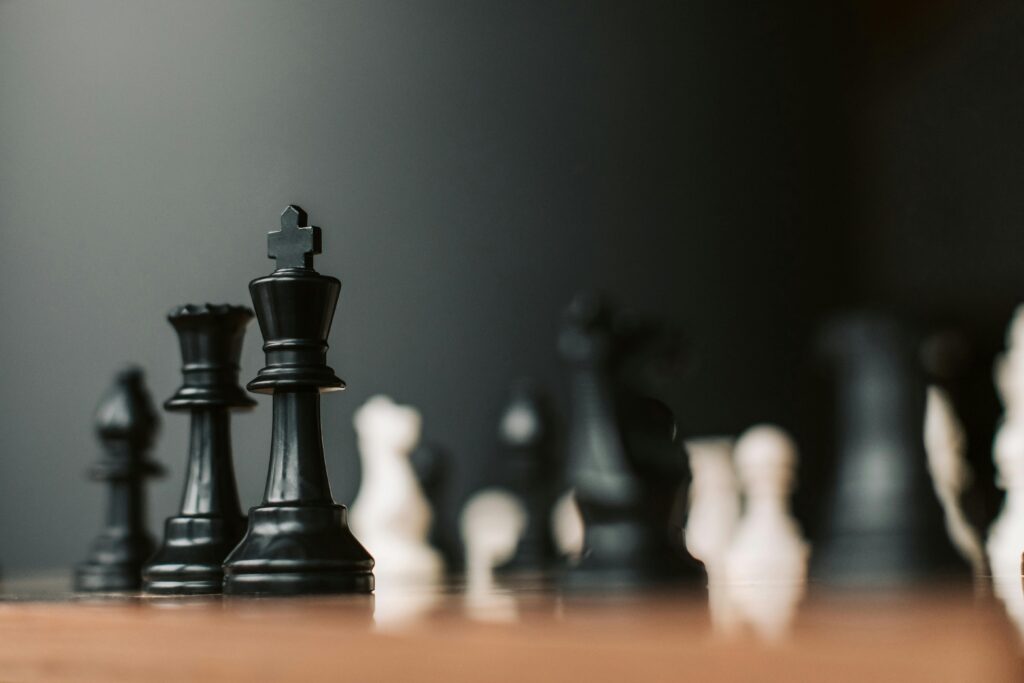
Compared to Global School of Chess, it lacks structure, depth, and flexibility.
Yorkshire Chess Academy
Yorkshire Chess Academy offers both private coaching and small group classes, mostly in person, and mainly in and around Leeds. Their coaches are knowledgeable and the setup is more organized than most offline clubs.
Still, they don’t provide the full experience of an international chess school. Their program isn’t global. It’s local. And without regular tournaments, flexible timings, or online support, many learners end up hitting a wall.
Global School of Chess, with its global student body and rich online tools, gives your child more room to grow.
Chess in Schools and Communities (Leeds)
This is a national organization that runs chess programs in schools across the UK, including in Leeds. Their goal is to make chess available to as many students as possible.
They do a great job of sparking interest, especially in beginners. But their reach is wide, not deep. Their lessons are usually basic, and their coaches rotate often. There’s no real path for long-term chess improvement.
Global School of Chess, on the other hand, is focused, structured, and built for serious growth over time.
4NCL Junior Chess (Yorkshire Division)
The 4NCL (Four Nations Chess League) runs some junior teams in Yorkshire. They offer tournament experience and a way to meet strong players. This is great for advanced students.
However, there are no regular classes or lessons here. It’s mostly about playing in events. And unless your child is already strong, it’s not the best starting point.
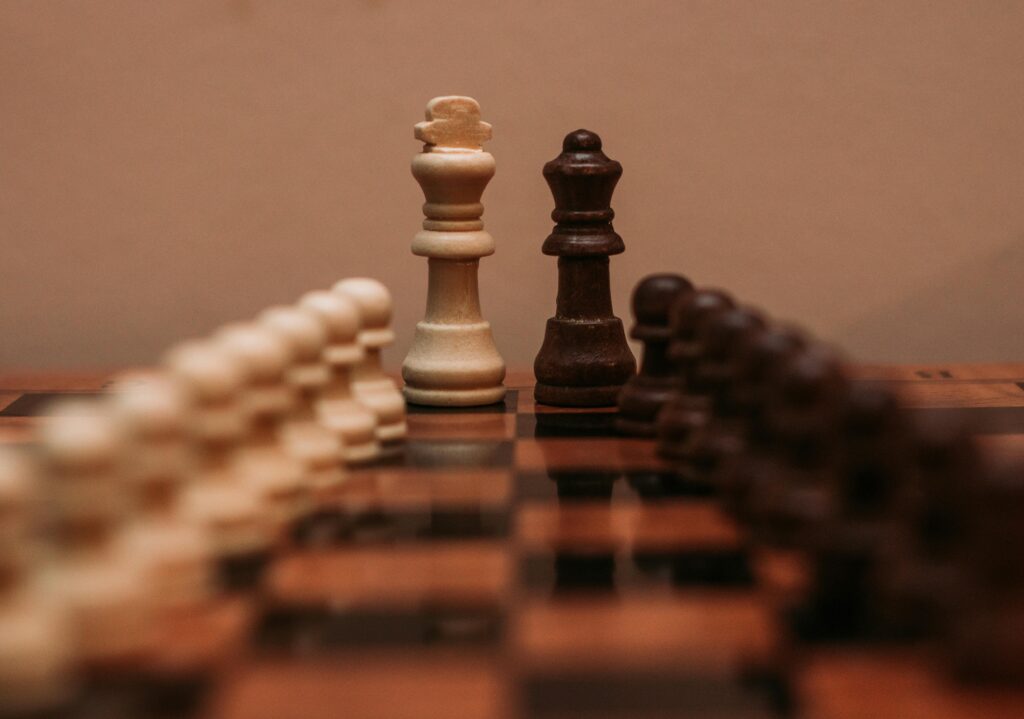
Global School of Chess offers both—learning and playing. That’s what makes it stand out.
Why Online Chess Training is The Future
Let’s stop and think for a second.
We order food online. We watch movies online. We learn math, music—even dance—online. So why not chess?
Online chess training is not just a quick fix or a temporary solution. It’s the future. And that future is already here.
Here’s why it works so well.
Kids today are growing up with screens. They’re fast. They’re curious. They’re used to clicking, tapping, and learning through videos. When done right, online learning actually matches how their brains work best.
In an online chess class, the board is right there. The pieces move. The coach draws arrows and highlights squares. Everything is clear. And your child can talk to the coach, answer questions, play practice games, and even raise their hand—just like in a real class. But better. Because it’s all in one place. Clean. Easy. Focused.
Online training also keeps records. Every class is saved. Your child can watch it again. If they miss a class, no problem. They can catch up. It’s like having a rewind button for learning.
And here’s something parents love—flexibility. Online classes fit around your schedule. No more rushing across town. No more canceling dinner plans. Your child can log in, learn, and log out—all from home.
Also, the level of coaching is way better. Why? Because you’re not limited to just local talent. Your child can learn from the best coaches around the world. Coaches who’ve trained champions. Coaches who know how to turn a shy beginner into a brave thinker.
And this is where Global School of Chess stands out the most. They’ve taken the best of online learning and made it magical. It’s not just Zoom and boards. It’s games, tournaments, tests, reviews, celebrations, and support. All online. All smooth. All powerful.
In a world where kids are already online, it makes perfect sense to bring the learning there too—especially when it’s this good.
How Global School of Chess Leads the Online Chess Training Landscape
While many chess platforms claim to offer “online training,” Global School of Chess does something very few others do—it builds a complete learning ecosystem. This isn’t just about teaching chess moves. It’s about shaping future-ready minds. That’s a big difference. And it’s why Global School of Chess is quietly setting the gold standard for online chess education.
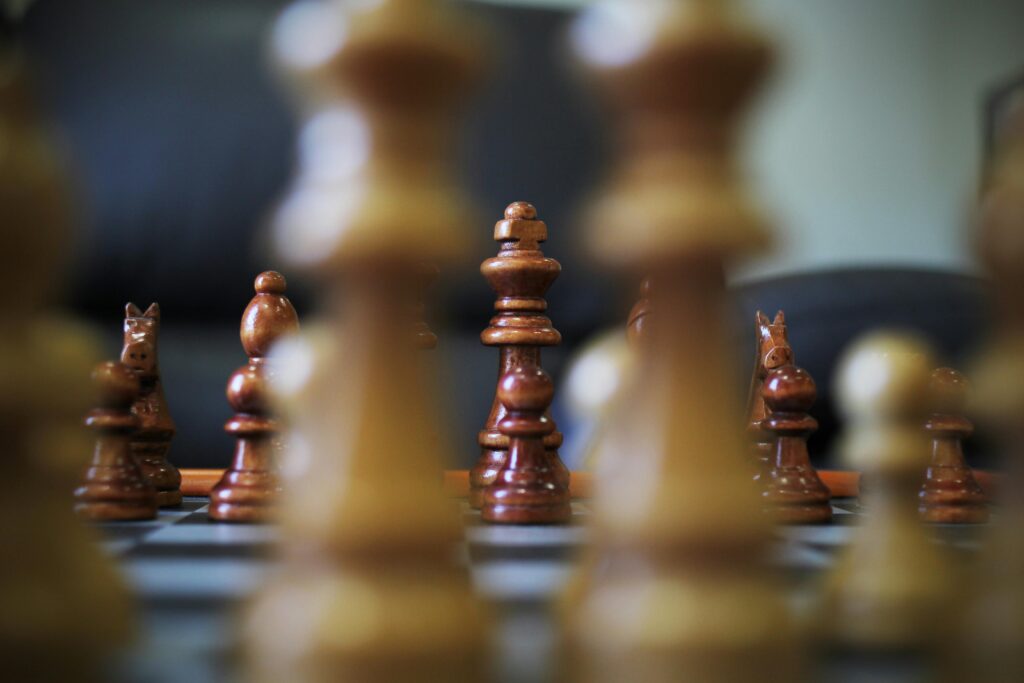
Structured Curriculum Backed by Learning Science
At the heart of the Global School of Chess is a deeply researched curriculum. It’s not thrown together. It’s built like a ladder—with clear steps, levels, and checkpoints. Every lesson connects to the next. Each skill is introduced, practiced, tested, and mastered before moving on.
This kind of scaffolded learning ensures no gaps. Students don’t just “know” something—they understand it, use it, and remember it. That’s how real learning happens.
Actionable tip for chess programs: If you’re building your own chess school or private coaching setup, start with structure. Don’t wing it lesson by lesson. Map out a 6-month plan. Define your levels. Design learning objectives for each class. This keeps students moving forward—and keeps parents happy.
Multi-Level Engagement: Head, Heart, and Hands
What makes Global School of Chess so effective is that they don’t teach just to the brain—they teach to the whole child.
- Head: Logical lessons, problem-solving, and deep thinking.
- Heart: Confidence, resilience, handling wins and losses with maturity.
- Hands: Real gameplay, practice tactics, and interactive tools.
This 3-layer approach turns passive learners into active players. Students don’t just get smarter—they grow stronger, calmer, and more thoughtful.
Actionable advice for educators: Don’t focus only on the game. Teach the child. Build small rituals into class—like a “focus moment” at the start, or a “bravery story” at the end. These emotional touches stick with kids longer than any tactic.
Parent Integration and Progress Communication
Most online programs ignore parents. Global School of Chess includes them. Parents get regular updates, progress reports, coach feedback, and even tips to help kids practice at home. This builds trust and loyalty—and helps the child improve faster.
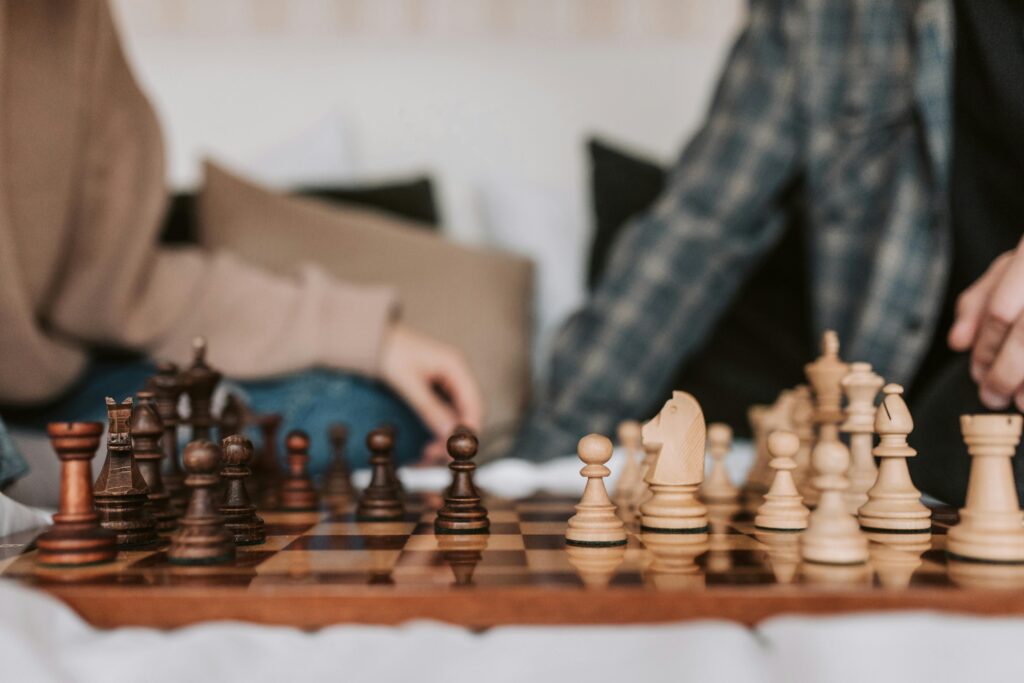
They also offer parents insights into their child’s behavior during lessons—who’s quiet, who’s overconfident, who needs a nudge. This turns parents into partners in the learning process.
Business insight: If you’re a chess coach or academy, create a parent dashboard. Or send monthly feedback emails. When parents feel included, they stick around. This boosts retention and referrals.
Technology that Serves People, Not the Other Way Around
It’s easy to drown in tech. But Global School of Chess uses technology wisely. They use high-quality video platforms, custom chess tools, simple scheduling systems, and in-class annotation—all in a way that supports teaching, not distracts from it.
Everything works smoothly. No downloads. No glitches. Just smooth, fast learning.
Tip for trainers: Keep tech simple. Invest in a good mic, lighting, and screen-sharing tool. Use one platform for teaching and one for managing class records. Don’t let tech overwhelm you—or your students.
Community Without Chaos
One of the secrets behind Global School of Chess is their global but calm community. Students from different countries play, learn, and grow together. But it’s never noisy. Never wild. Every child feels safe, seen, and supported.
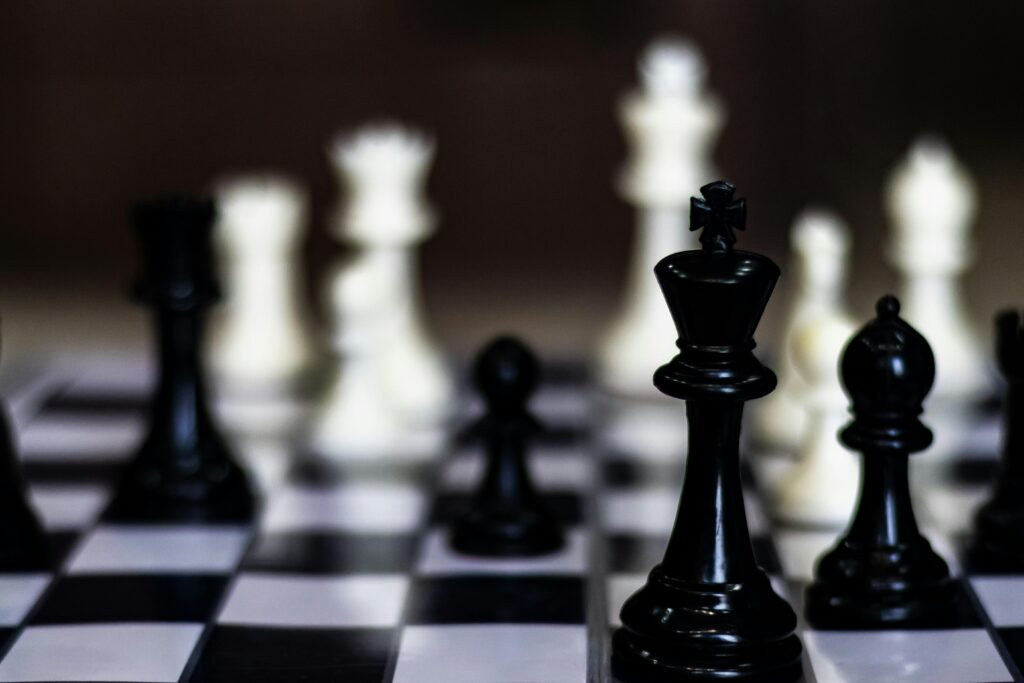
Their online tournaments are supervised. Their classes are moderated. Their chat systems are clean and kind. It’s a place where students can truly belong.
Advice for chess programs: Build a culture, not just a classroom. Create community rules. Celebrate student wins publicly. Offer themed days (like “Puzzle Friday” or “Play Like Magnus Monday”). Make it fun. Make it family.
Wrapping It Up
Chess isn’t just a game. It’s a way to build smarter, calmer, more focused kids. It teaches them how to think ahead, how to handle stress, how to win with grace, and how to lose with strength. And like any important skill, it needs the right kind of training.

